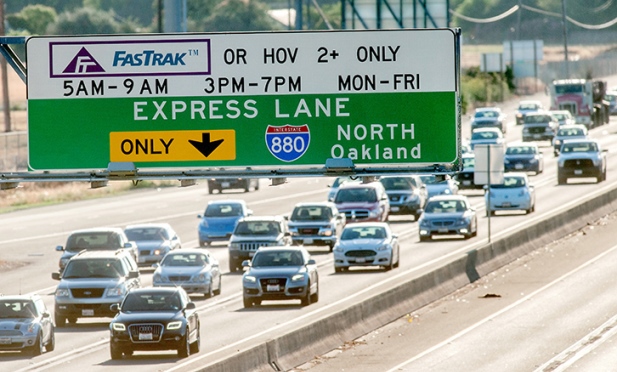 Prop 6 would have repealed a 2017 transportation law's taxes (credit: Metropolitan Transportation Commission).
Prop 6 would have repealed a 2017 transportation law's taxes (credit: Metropolitan Transportation Commission).
SAN FRANCISCO—After months of political mailers and television commercials, the midterms are finally in the rear-view mirror. Here's a look at some of the propositions impacting real estate that were passed or defeated in Tuesday's election.
Prop A Embarcadero Seawall Repair: Passed
Proposition A will incur the following bonded debt of the city and county: $425 million to finance the construction, reconstruction, acquisition, improvement, demolition, seismic strengthening and repair of the Embarcadero Seawall and other critical infrastructure, and related costs necessary or convenient for
the foregoing purposes. This authorizes landlords to pass-through 50% of the resulting property tax increase to residential tenants in accordance with Administrative Code Chapter 37.
Prop C Homeless Tax: Passed
Proposition C creates a dedicated fund to support services for homeless people and prevent homelessness, including one tax of 0.175% to 0.69% on gross receipts of more than $50 million that a business receives in San Francisco, according to the department of elections.
Prop 5 Homeownership Transfer Requirements: Defeated
Proposition 5 would have removed certain transfer requirements for homeowners older than 55, severely disabled homeowners and contaminated or disaster-destroyed property, meaning those owners would have been eligible for property tax savings when they move to a different home. Fiscal Impact: Schools and local governments each would lose more than $100 million in annual property taxes early on, growing to about $1 billion per year. There will be a similar increase in state costs to backfill school property tax losses.
Prop 6 Transportation Law's Taxes And Fees: Defeated
Proposition 6 would have repealed a 2017 transportation law's taxes and fees designated for road repairs and public transportation. Fiscal Impact: Reduced ongoing revenues of $5.1 billion from state fuel and vehicle taxes that mainly would have paid for highway and road maintenance and repairs, as well as transit programs. A no vote on this measure means fuel and vehicle taxes recently passed by the legislature would continue to be in effect and pay for highway and road maintenance and repairs, as well as transit programs. The legislature would continue not to need voter approval for new or increased state fuel and vehicle taxes in the future.
Prop 10 Rent Control Policies: Defeated
Proposition 10 would have repealed state law that currently restricts the scope of rent control policies that cities and other local jurisdictions may impose on residential property. Fiscal Impact: Potential net reduction in state and local revenues of tens of millions of dollars per year in the long term. Depending on actions by local communities, revenue losses would have been less or considerably more. Defeat of this measure means state law would continue to limit the kinds of rent control laws cities and counties could have.
© Touchpoint Markets, All Rights Reserved. Request academic re-use from www.copyright.com. All other uses, submit a request to [email protected]. For more inforrmation visit Asset & Logo Licensing.







